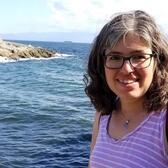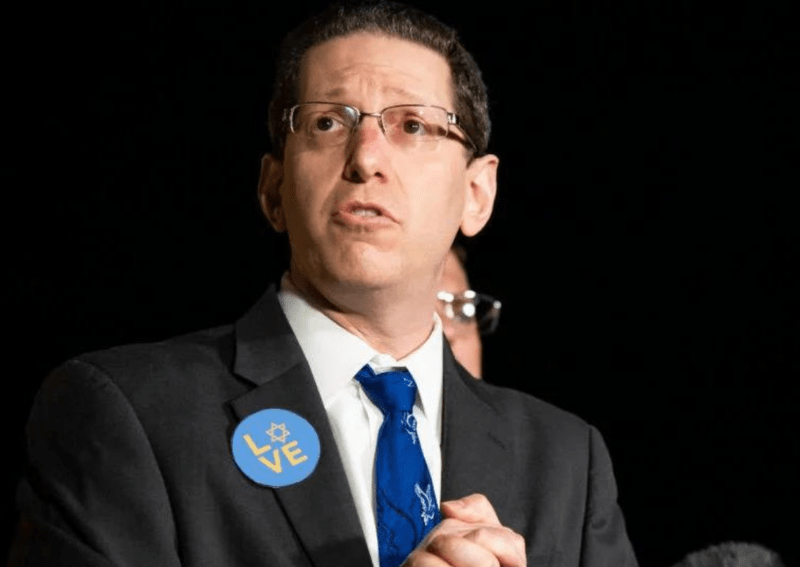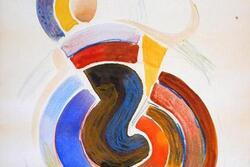We Must Remember Who We Are as Jews—Even after Colleyville
“As I contemplate the brutal rise of #antisemitism and continuing acts of violence targeting Jews…I keep returning to this mantra: our safety is in our solidarity…”
—Rabbi Jonah Pesner, Director of the Religious Action Center of Reform Judaism, in a Twitter thread on Martin Luther King Jr. Day.
I am a gun violence prevention advocate. I am also a Jew. And on Saturday, January 15, 2022, as I waited for updates on the fates of my fellow Jews at Congregation Beth Israel in Colleyville, TX, I felt incredibly vulnerable. Like Jews across the country and the world, I cycled through a variety of thoughts, feelings, and prayers. I kept refreshing the news on my phone every few minutes hoping for confirmation of the safe release of the hostages and a nonviolent end to the ordeal. I wanted everyone to get out alive and physically unharmed. While I grieve the trauma caused by one person with a gun, I do not celebrate his death.
Since that day, I have been sitting with so many thoughts. I have had deep discussions with other Jews about how we move forward, and thoughtful conversations with non-Jewish friends and colleagues who have shown up in solidarity.
But I am also struggling with some of the dialogue that has ensued since that day. The public discourse about Colleyville is rightly focused on this event as yet another terrifying example of antisemitism. The reaction has centered on the need for greater security and protection for Jewish institutions, accurate threat assessments, and techniques for defending yourself and your congregation should the unthinkable occur.
I, too, worry about whether I will ever feel safe going to shul on Shabbat, so I understand why we are speaking from this place of fear. But we must realize that there is a cost to adding even more security, barriers, and boundaries in synagogues. I know my shul is not the only one struggling to become a more welcoming space, where our increasingly diverse Jewish community and interfaith families can find a sense of place and belonging. Throwing open our doors with a clear message of invitation is something we have not historically done well. As we make our doors more secure, my fear is that the sense of welcoming we strive to foster will become increasingly elusive.
As much as we all want to feel safe in shul, we must wrestle with thorny questions about the impact of increased police presence in Jewish spaces, particularly for Jews of Color. We must grapple with the question of who gets to feel safe in our Jewish institutions. While having armed and uniformed police officers guarding our doors and patrolling our parking lots might make many of us feel safer, we must remember that a significant number of Jews are not white, and they are a part of our “us” too. With many members of OUR Jewish communities carrying historical trauma and negative lived experiences with law enforcement, an increased police presence could make it harder for them to feel safe at shul and undermine the essential work of making Jewish spaces welcoming for everyone.
These are difficult conversations to have, but we cannot shy away from them. In fact, we need to have more of them. And these conversations should include the voices not only of our fellow Jews, but of our non-Jewish friends, neighbors, and allies. After all, we want people from our broader communities to feel they have a home in our Jewish spaces, too.
We must also remember another uncomfortable truth: the traumatic event in Colleyville was an incident of gun violence. Our Jewish family at Congregation Beth Israel was threatened by a man with a gun. How we respond to gun violence that is driven by antisemitism is incredibly important, as is how we integrate that response with a broader commitment to addressing the issue of gun violence in this country.
I wrote about this complexity for JWA two years ago, and stand by the argument I made then— that our conversations about safety for our individual congregations and Jewish spaces must happen in concert with conversations about how gun violence impacts all communities.
All these tensions and complexities come together in how we move forward from this moment of vulnerability. When we talk about our need for safety in a post-Colleyville (and Pittsburgh and Poway) world, whose safety are we talking about? Are we acknowledging that safety may mean something different for our community members of color? Are nuanced conversations not only welcomed, but sought out? And as we think about the safety of our Jewish spaces, are we demonstrating a commitment to safety for all people, Jews and non-Jews, in spaces we may never enter ourselves?
The work of fighting for others’ safety is a hallmark of pursuing justice, itself a foundational Jewish value. It is also a vital part of addressing antisemitism and racist hate. In an interview shortly after the 2018 shooting at Tree of Life synagogue in Pittsburgh, Ilana Kaufman, now the Executive Director of the Jews of Color Initiative, talked about what Jews must do to combat white supremacy and hate : “[T]he most important strategy we can develop is to come together to develop friendships and trust and relationships so that when we need each other as neighbors and as friends, and when the white supremacists come knocking on our doors or when they come marching down our streets, that we know each one of us is going to come out of our houses to support the other, that we will not question who needs this kind of advocacy, but it becomes part of our culture as a nation and as a people.”
It seems most fitting to end with the words of Rabbi Charlie Cytron-Walker, the rabbi at the Beth Israel synagogue who was one of the hostages and ultimately helped them all escape. In an interview on NPR just days after the event, he was asked what he would do the next time a stranger knocks at the synagogue door. He responded: “[W]hen someone comes to the door, they are nervous. They are questioning. They’re asking, am I going to be accepted? Am I going to belong? And I want them to know that they are going to belong. We can’t forget about who we are.”
We are Jews. We are commanded to welcome the stranger, to care about their safety and well-being. This is who we are.







So well said. Thank you. Hope, Joy, and Love, Mark